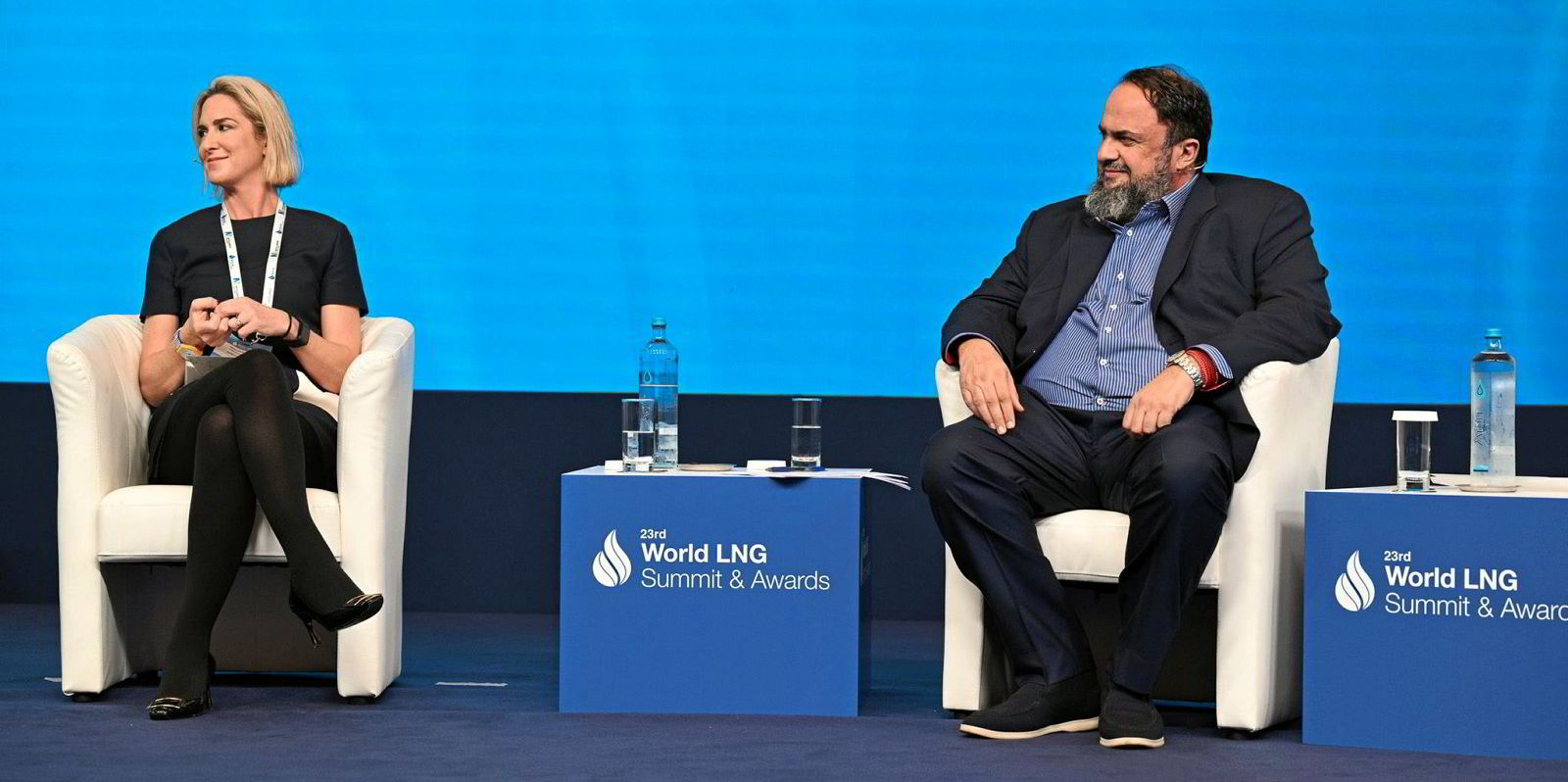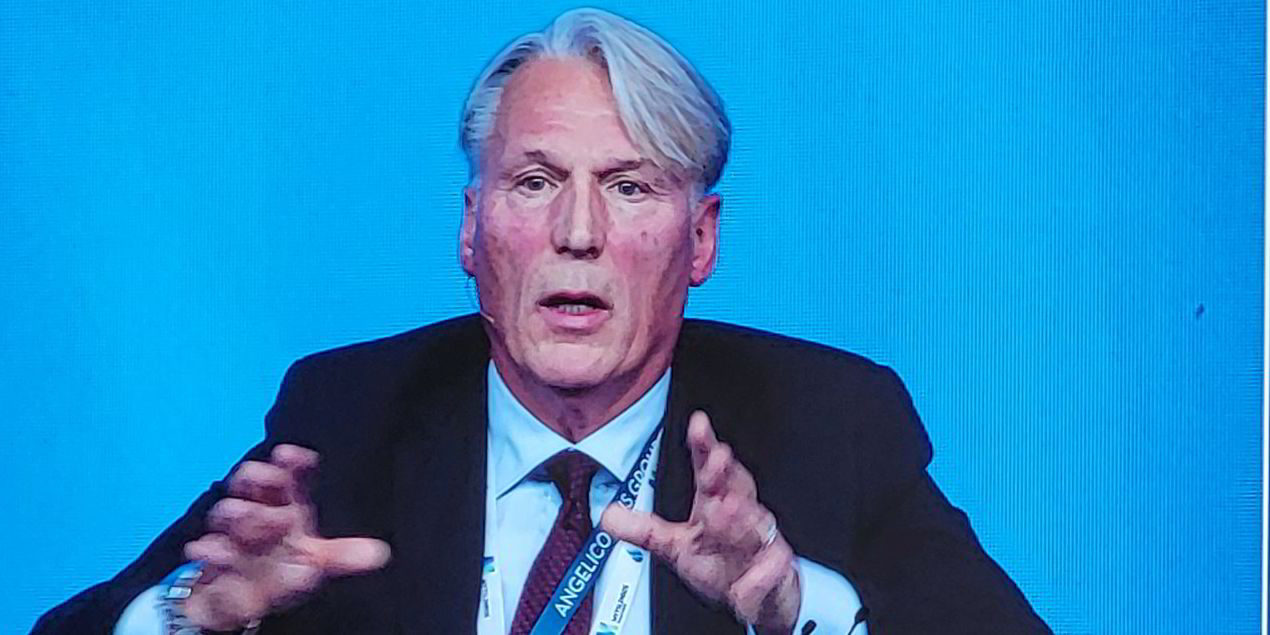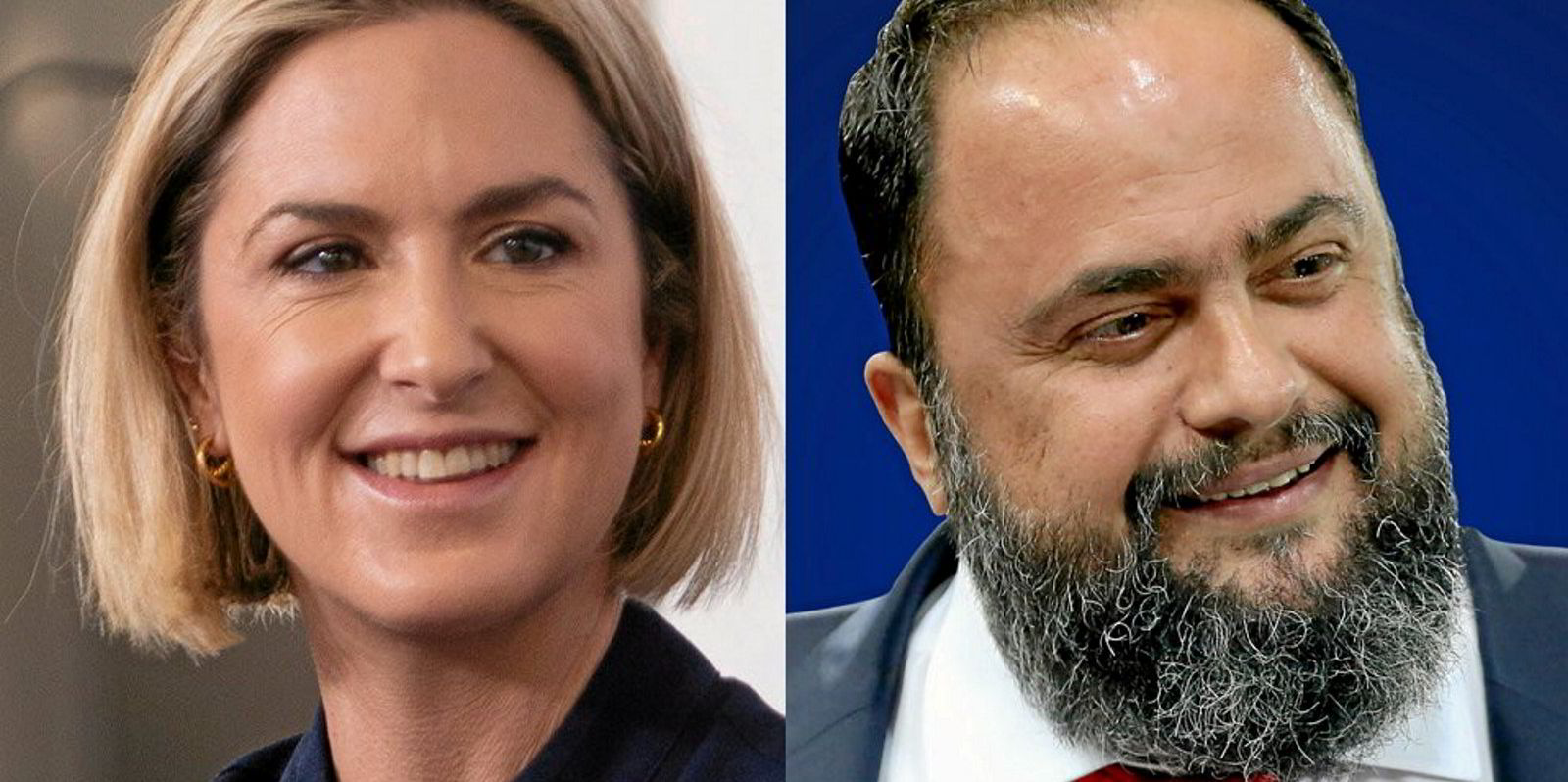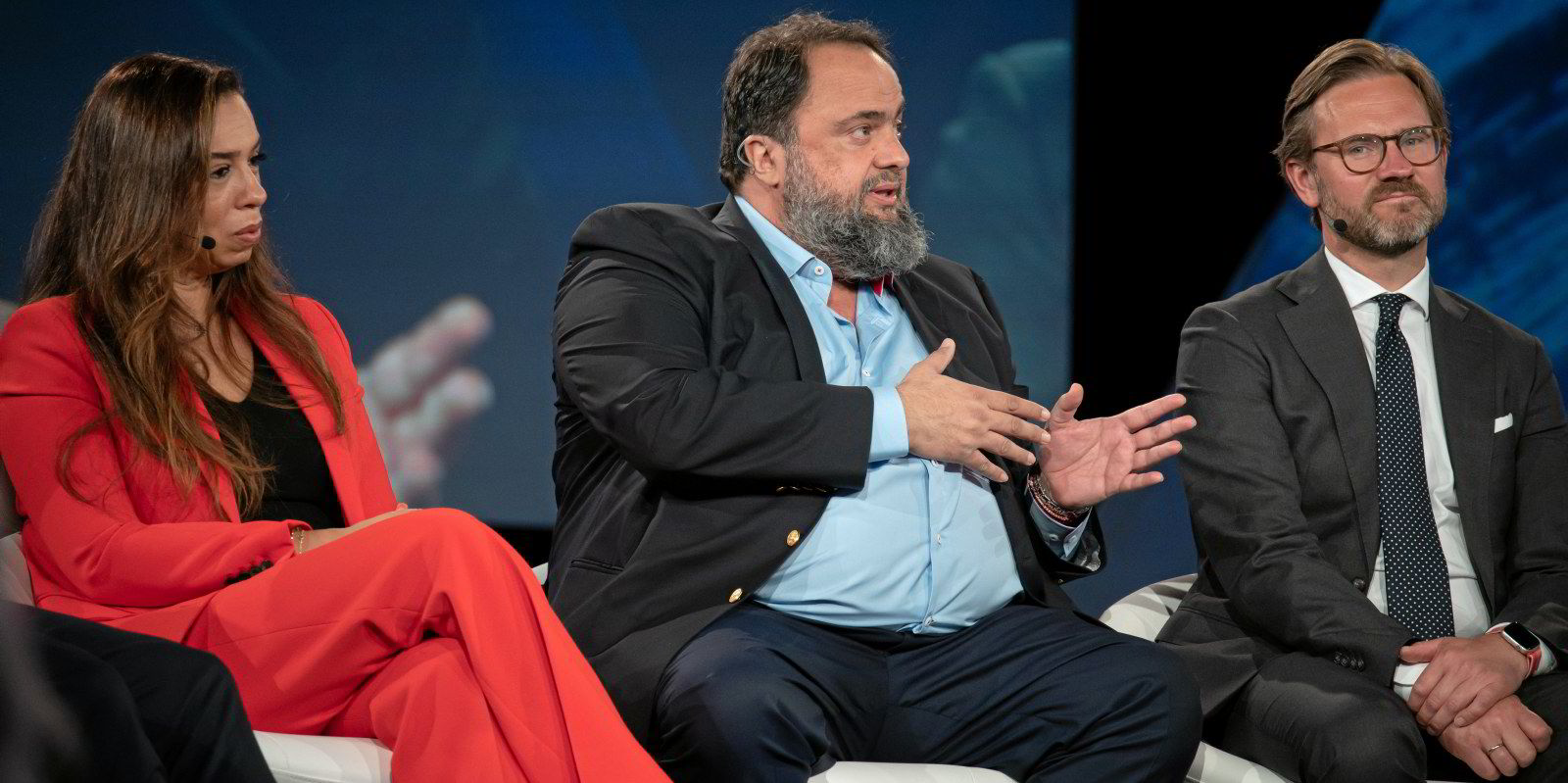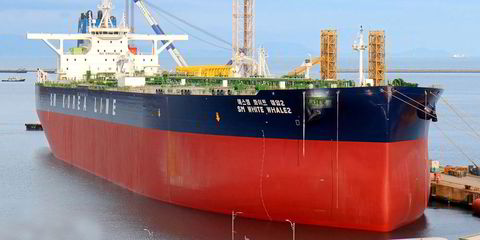New LNG carriers warrant charter rates of over $100,000 per day but are currently being penalised in the market due to the current high cost of their construction, Capital Maritime & Trading Corp founder and chairman Evangelos Marinakis said.
Marinakis was speaking at the World LNG Summit & Awards in a rare two-person shipowner panel session alongside another prominent Greek owner, Angelicoussis Group president and chief executive Maria Angelicoussis.
He said the LNG ships building now are penalised in the market.
Marinakis said the rate difference between a tri-fuel diesel-electric LNG carrier and its modern two-stroke cousin is about $40,000 per day, with the gulf to the steam turbine vessels at around $80,000 daily.
“I think the minimum rate in order to have guidance should exceed $100,000 per day,” he said, highlighting that the delivered cost of an LNG newbuilding is closer to $280m.
“I think it is fully justified to have these sorts of rates to make sense. We don’t see rates going down,” he added.
In a session moderated by Lloyd’s Register chief commercial officer Andrew McKeran, Angelicoussis and Marinakis spoke on a wide range of issues from vessel requirements to alternative fuels, Chinese shipbuilding, incoming regulations and geopolitics.
Angelicoussis said the Angelicoussis Group is positive on LNG in the short, medium and long term.
Among the demand drivers, she cited the 180m tonnes of newly sanctioned LNG supply due onstream in the next five years; ongoing European demand for natural gas, where major buyers have signed 27-year LNG contracts; and the world’s largest buyer of LNG, China, which has aspirations to increase its imports to 100m tonnes over the next six to seven years.
On the supply side, she rubbished the thinking that the market is over-supplied with LNG carriers.
“We believe the market will be in balance if not short of LNG carriers,” she said, mentioning the phase-out of LNG steam turbine vessels as a factor that could tighten it further.
Marinakis described Capital’s decision to zone in on LNG as “very simple” in that it produces around 25% less carbon emissions.
But he added that shipping is not subsidised and the industry is not seeing charterers paying extra for the freight to make the company’s investment worthwhile.
He said Capital is going ahead with newbuildings without having a charter for them. But prices for LNG carriers have risen from $180m in 2018 to $260m today, and there is now a different environment for interest rates.
China’s growing role
Angelicoussis said that while shipping moves in cycles, this time the Angelicoussis Group does not see shipyard prices reducing drastically, largely because of the constraint on capacity at the big three South Korean yards due to labour shortages. She said Chinese shipyards are yet to be tested.
The CEO revealed she and others from the company had toured Chinese yards in October and said yards were dedicating time, money and resources to getting up to speed. “I think in the medium to long term China is the future of shipbuilding,” she said.
On fuelling, Angelicoussis declared the company “fuel agnostic” and said choices would depend on the size and trade of the vessel.
“Today, we believe dual-fuel LNG is by far the best solution for our fleet,” she said, and if bio-LNG and synthetic-LNG are added in the future, it is possible to get to net zero.
“We don’t look at these as transition ships; we look at them as net zero ships,” she said, urging the Greek shipping community that this is a good point to embrace the energy transition.
‘Going with it’
Marinakis said Capital is investing a substantial amount of money in dual-fuel vessels.
He said the infrastructure is there for LNG fuelling, and the company can find the bunkering it needs “most of the time”.
For methanol and ammonia, he said: “We don’t know the cost.”
“LNG is a commodity, it is cleaner and for the next 10 to 15 years, at least, we will go with it,” he said.
But both shipowners are positive on ammonia as a fuel.
Marinakis said it is a cleaner fuel, and the production and consumption of it will come.
Angelicoussis said: “We also believe in ammonia”, both as a zero carbon fuel and as an energy carrier, adding that it has much potential for the size and trades of ships the company has.
But she said the shipping industry needs to move very cautiously and carefully to minimise the hazards of bringing in a toxic substance.
